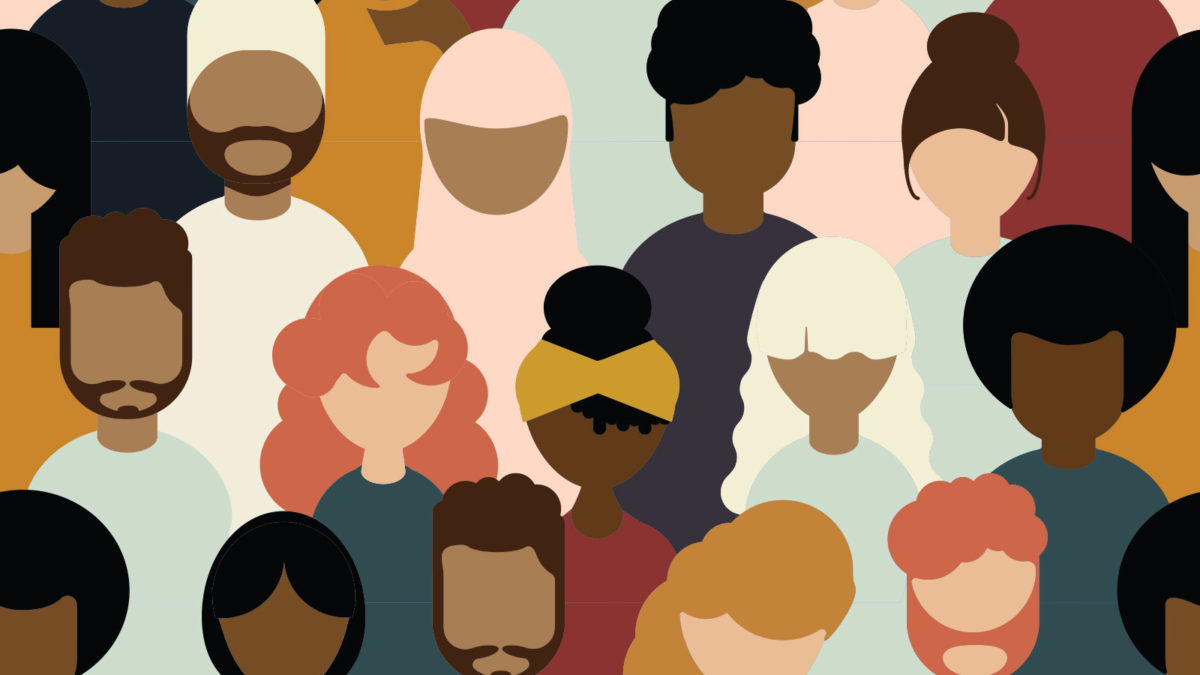
The Colorado Appellate Courts’ Commitment to Diversity and Inclusion
July 2020

The Colorado appellate courts are committed to diversity and inclusion of highly qualified candidates for externships, law clerk positions, jobs on the court staff, and judgeships, including candidates from traditionally underrepresented backgrounds. By expanding the pool of applicants, the appellate courts can identify strong candidates who may not otherwise know about these opportunities and, at the same time, improve diversity and inclusion within the judicial system.
This article discusses three of those efforts: the Lorenzo Márquez Appellate Externship Program, the courts’ work with the Pledge to Diversity, and the “Dream Teams” that help to identify and train diverse candidates for the bench.
Lorenzo Márquez Appellate
Externship Program
Colorado Court of Appeals Judge Lorenzo Márquez decided in the 1990s that he wanted to increase diversity and inclusivity at the Court. Judge Márquez, now retired, became very aware of the lack of diversity in the chambers and hallways of the old Supreme Court building when he joined the Court in 1988. So he took it upon himself to ask the Colorado law schools to send diverse law students to participate in externship opportunities.
Simultaneously, Judge Márquez reached out to colleagues about mentoring these externs. These actions set in motion the diversity and inclusivity initiatives that the Colorado appellate courts have fully embraced.
The diversity externship program started with little fanfare. Because of limited working space in the old courthouse, there were only a few externs at any one time. But by 2014 the old courthouse had been demolished and, in its place, stood the much more spacious Ralph L. Carr Judicial Center. With more work spaces now available for externs, Judge Gilbert Román, who took over as diversity externship liaison when Judge Márquez retired, recognized the opportunity to expand the program.
He reached out to his colleagues, much as Judge Márquez had done 15 years earlier. The Court of Appeals judges enthusiastically accepted the invitation to take part in the diversity externship program, and the number of participating judges swelled from an average of four judges in a typical year to about 17 judges a year. This enabled more diverse externs to participate in the program as well.
A year later, the Colorado Supreme Court also became involved with the diversity externship program through its new liaison, Justice Monica Márquez (Judge Márquez’s daughter). Since that time, the Supreme Court has accepted an additional six to eight diverse externs each year. Today, between the two courts, the Colorado appellate diversity externship program brings around 25 diverse externs to the Carr Courthouse each spring term.
In 2019, in recognition of Judge Márquez’s efforts over 20 years earlier, the Supreme Court and Court of Appeals voted to rename the diversity externship program the Judge Lorenzo Márquez Appellate Externship Program.
Becoming a Márquez Scholar
So how does the program operate? Each fall, the Colorado Supreme Court and Court of Appeals seek applications from diverse 2L, 3L, and 4L students from the University of Colorado and University of Denver law schools to serve as Márquez Scholars. (4Ls are typically night or part-time students.) These externs are assigned to a Supreme Court justice or Court of Appeals judge, whom the externs assist with research and drafting during the spring semester. Márquez Scholars may apply to participate in the program through their law schools in the fall semester, and academic credit is available.
In considering diversity, the Judge Lorenzo Márquez Externship Program looks to members of our community who have been historically underrepresented in the legal profession because of their race, ethnicity, disability, age, sexual orientation, gender identity/expression, socioeconomic status, or national origin.
In recent years, the program has begun to generate a pipeline at the appellate courts as judges hire former externs as law clerks. Today, this pipeline is expanding even further through the appellate courts’ partnership with the Pledge to Diversity and “Dream Teams” for potential judicial candidates.
Pledge to Diversity
For more than 20 years, the Colorado Pledge to Diversity, a nonprofit organization, has run a summer clerkship program for diverse first-year law students from the University of Colorado, University of Denver, and University of Wyoming. The 1Ls are placed at law firms and other employers, primarily in the private sector. Signatories to the Pledge that offer law-related clerkships in Colorado agree to hire, train, and supervise at least one summer clerk through the program each year. The program increases the participation of diverse law students in clerkship programs, with the long-term goal of increasing hiring of diverse students.
Criteria
To participate in the Pledge’s summer program, students must meet a GPA requirement and have a diverse background that has been traditionally underrepresented in the practice of law. The application materials include a confidential evaluation from a legal writing professor, a personal statement, and a law school transcript.
The Pledge includes a rigorous screening process for applicants. After students submit their application materials, a panel of Pledge employers interviews qualifying applicants. Individual employers then select students for callback interviews. Those applicants will have the opportunity to interview with a minimum of three employers. Many students who participate in the Pledge obtain second-year and post-graduation positions through the contacts they make through the program.
Working Group
Court of Appeals Judge Lino Lipinsky worked with the Pledge at his prior law firm. Upon joining the Court in 2019, he established a working group of judges, court employees, and Pledge leaders to explore ways the students participating in the Pledge could also learn about opportunities at the state appellate courts, including the Lorenzo Márquez Appellate Externship Program. The courts’ partnership with the Pledge provides yet another opportunity for increasing the diversity of the Supreme Court’s and Court of Appeals’ externs, law clerks, and staff.
As a result of these efforts, state appellate judges spoke at the first two Pledge events of 2020, including a well-attended reception for law students and Pledge signatories on January 31.
Dream Teams
“Dream Teams” comprise justices, judges, and attorneys (with support from the Center for Legal Inclusiveness) who encourage members of historically underrepresented groups to consider a legal career and judgeships. Volunteers devote about 10 hours a year to a team and build lasting relationships with attorneys, judges, law students, and other legal professionals.
Current Initiatives
For example, a team led by Justice Melissa Hart, Justice Will Hood, Justice Márquez, and County Court Judge Don Toussaint encourages diversity on the bench. The team conducts educational, community outreach, and mentorship initiatives, including a CLE on the process of becoming a judge and navigating the application process, and a “coffee brigade” that advises attorneys one-on-one on the responsibilities of a judge and the process for becoming one. Sumi Lee, the Judicial Department’s new head of judicial diversity outreach, coordinates the “coffee brigade” and works closely with the Center for Legal Inclusiveness (which advances diversity in the legal profession) on “Dream Team” initiatives.
In addition, Court of Appeals Judge Terry Fox and County Court Judge Gary Jackson lead a team that provides mentorship and practical guidance to diverse and female candidates applying for judgeships, including application and process advice and extensive mock interviews. Several participants in these efforts are now appellate judges.
Conclusion
Through the Lorenzo Márquez Appellate Externship Program, the courts’ partnership with the Pledge to Diversity, and the various Dream Team initiatives, among other efforts, the Colorado appellate courts are committed to expanding the pool of candidates for positions at the courts, as well as the principles of diversity and inclusion.


